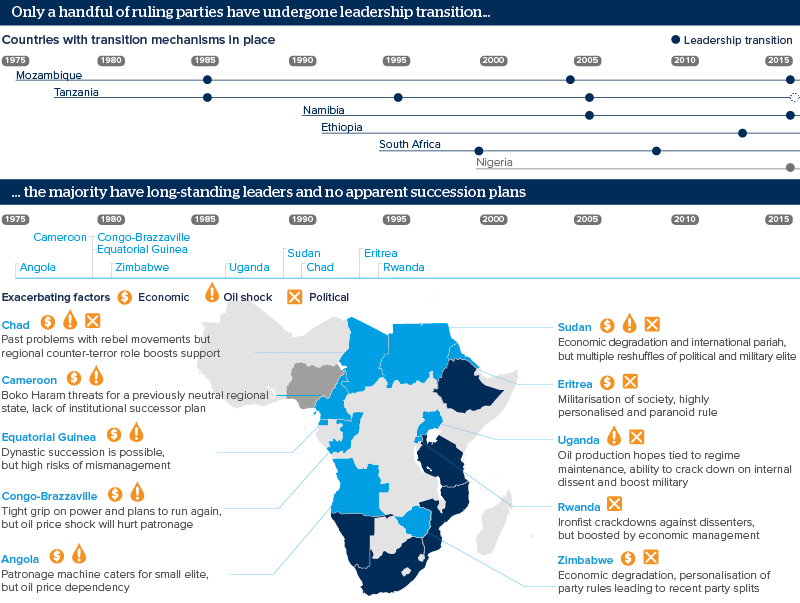Succession risks cloud Africa's transition outlook
Regime stability -- rather than democratic competitiveness -- is a better barometer of smooth political transition

Source: Oxford Analytica
Outlook
Nigeria's handover of power was a symptom of the fragmentation of the party that had been in power since 1999: it had stopped working as an institutionalised platform for the country's diverse interests.
The ability of ruling parties to prepare for leadership change will shape future political stability. Some parties boast relatively robust internal democracy and, in particular, proven mechanisms for succession.
A growing number, however, show few signs of planning for transition. Ageing leaders have instead personalised rule, cracked down on internal dissenters and manipulated constitutional rules. Without ameliorating economic factors, stability risks may lie ahead.
Impacts
- Despite authoritarianism, Rwanda's president can use technocratic economic management to boost popular support.
- Chad's troubles with rebels and oil fragility are set to stay, but the president's counterterror role is growing support for his tenure.
- Ethiopia continues to defy all expectations following its smooth handling of leadership transition in 2012.